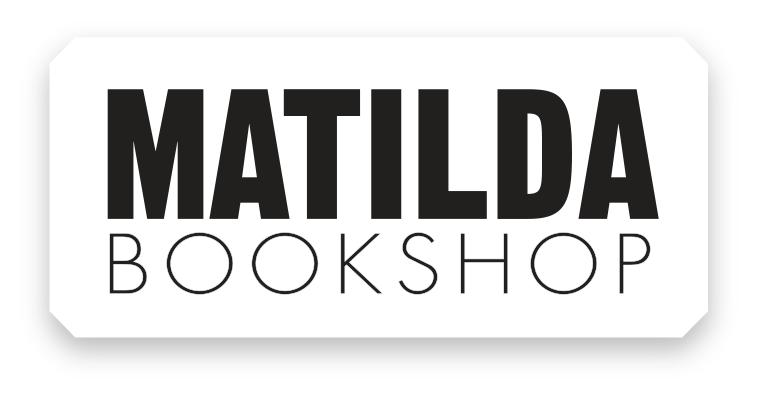
Rita Bullwinkel is the author of Headshot and Belly Up, a story collection that won the Believer Book Award. She is a 2022 recipient of a Whiting Award, the editor of McSweeney's Quarterly, a contributing editor at NOON, the creator of Oral Florist, and a Picador Guest Professor of Literature at Leipzig University in Germany, where she teaches courses on creative writing, zines, and the uses of invented and foreign languages as tools for world building.
Why do you tell stories?
I write to try to understand how I feel.
Describe Headshot in one sentence.
Headshot is about a youth women’s boxing tournament in Reno, Nevada, and the strange way that the playing of games has the ability to create a collective memory.
What is it about boxing that made you choose this sport as the framework to support your stories of the eight girls beginning to understand who they are and their place in the world?
Because boxing is a one on one sport in which you cannot speak, it’s a unique stage for two characters to explore their interior lives and project their perceptions and understanding of the world upon one another. In this way, the structure of the sport itself provided, for me, an ideal canvas for portraiture.
The omniscient narrator swooping in and out of the women’s minds, into their pasts and as yet unlived futures, is a singular part of the novel’s deep appeal to us. Did this voice arrive early for you or did you consider and discard other more conventional approaches? (In the author’s note you refer to an excerpt being published in 2019, was Headshot a work that took a long time to arrive in its finished form?).
I wrote a long manuscript that was two or three hundred pages from the point of view of a single young woman boxer, that was first person, past tense, and, one day, after rereading that draft in a single sitting, I knew that it was not the story that I wanted to tell, that the only parts of the manuscript that had any energy were the ones that were directly inside of the ring, and that that was the book I wanted to write. The whole book needed to take place entirely inside the ring, inside the structure of a tournament bracket. About twenty minutes after I first read the now discarded manuscript, I drew the tournament bracket that became the structure of the book, and I named all eight of the main characters, and then, in the next day, I wrote the first chapter, and that first chapter, and the tournament structure, and even the character names, have, since then, always stayed the same. The excerpt published in 2019 was an excerpt of the first match, and is very close to how the first match reads in the finished book.
The rhythm of your words feels to the reader as though it almost mirrors the staccato violence of a boxing match. What were you hoping to evoke with this unique style? (As a sidenote, these readers loved all of your highly-imaginative metaphors for the boxers’ bodies, (veal/ carboard boxes/ bodies of water/ citrus/ under-cooked pie among many others)
I was hoping that the rhythm would feel like an incantation, and that the repetition of the boxers’ first and last names would imbue the names with glory. I wanted their names to sound like gods or key historical figures in history.
When and where do you write?
I write wherever and whenever I can, which is, quite often, late at night and in bed. I don’t own a desk.
For us, the fulcrum the book rests on is the shadowy space between the visceral impact boxing has on the women’s bodies (their ‘searing radiance’) and their understanding that what they’re doing is meaningless, even disavowed, by society as a whole. What were the challenges of writing into such a nuanced dichotomy?
I am so grateful that you picked up on this dichotomy! So much of what I do in my life, and what I am obsessed with (books, writing), seems to have an outsized importance to me compared to what society makes of it at large, and thus this dichotomy came quite naturally to me, and I think might also be recognizable to anyone who has ever spent an inordinate amount of time doing something that they are aware, in a larger context, means very little.
What are three things that sustain you as an author, or while you’re writing?
The work of others. I am constantly changed by art and fiction, and this always surprises and delights me.
Name three books that were crucial to the writing of Headshot?
This is a difficult question to answer, because while I read obsessively and constantly, this was not a researched book, or a book in which I felt I was writing into a specific group or canon. Books about sport that I adore include The Lord of Misrule by Jaimy Gordon and Kick the Latch by Kathryn Scanlan, although I read Kick the Latch after I had already finished Headshot. I also love the way Natalie Diaz writes about basketball and the way that David Foster Wallace wrote about tennis.
What books have you read and loved recently?
I am in love with the work of Yuri Herrera, especially his masterwork Kingdom Cons, and his recent genre-bending story collection Ten Planets.
PS And we have to ask, have you, or indeed do you, box yourself?
I have never boxed, even in a recreational setting. I have also never attended a boxing match in person.


